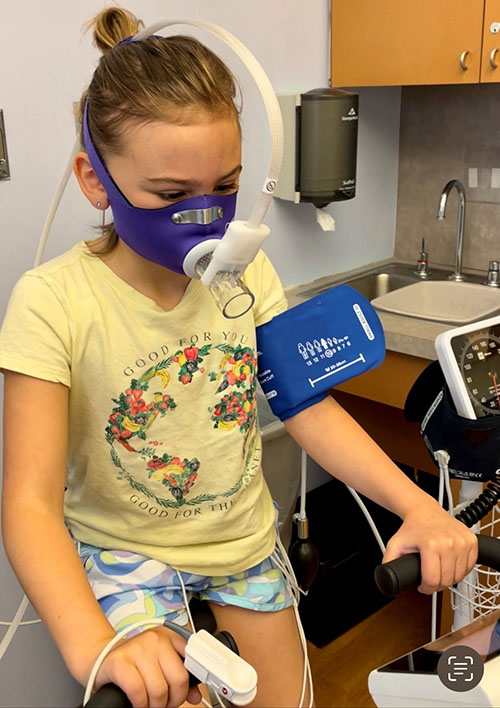Pediatric Sports Cardiology and Exercise Testing
Our Pediatric Exercise Laboratory offers expertise in providing cardiac risk assessment and care for young athletes with and without congenital heart disease and provides comprehensive care for all children and adolescents looking to begin or return to physical activity. Regular exercise is critical to physical and mental health in the developing child and it is our mission to empower your child to return to the activities they love. Our team of expert Sports Cardiologists and Exercise Physiologists will address your child’s specific cardiovascular concerns surrounding exercise and perform a comprehensive cardiovascular fitness and safety assessment.
Services We Provide:
Physical Activity Clearance examination and evaluation
Electrocardiography
Echocardiography
Cardiopulmonary exercise testing (“VO2 max test”)
Nuclear stress testing
Ambulatory ECG monitoring
Cardiac CT and MRI
Cardiac Rehabilitation/Home Exercise Programs
Types of exercise testing
Exercise tests are conducted by an expert in exercise physiology. They are designed to provoke previously observed symptoms (such as chest pain or shortness of breath) in a controlled testing environment and evaluate how your child responds to exercise. The Children's Hospital of New York offers the following types of pediatric exercise testing:
- Cardiovascular Stress Test: An exercise evaluation using a treadmill. A heart rate monitor will record the heart rate and rhythm throughout the study. Your child's blood pressure and oxygen levels will also be monitored.
- Cardiopulmonary Exercise Test: An exercise evaluation is performed using a treadmill or stationary bicycle. A heart rate monitor with help evaluate the heart rate and rhythm. There is also a mask that the child will breath into that records the oxygen and carbon dioxide levels in each breath. The child’s blood oxygen levels and blood pressure will be monitored as well. A lung function test will be performed both before and after exercise.
- Exercise-Induced Asthma Challenge: An exercise evaluation is performed using a treadmill. A lung function test is measured both before and after the test to determine if your child has exercise-induced asthma.
- Six Minute Walk Test: This test does not use any exercise equipment. This is a walking test that is performed to observe how far a child can walk in six minutes. The oxygen levels and heart rate will also be monitored.




